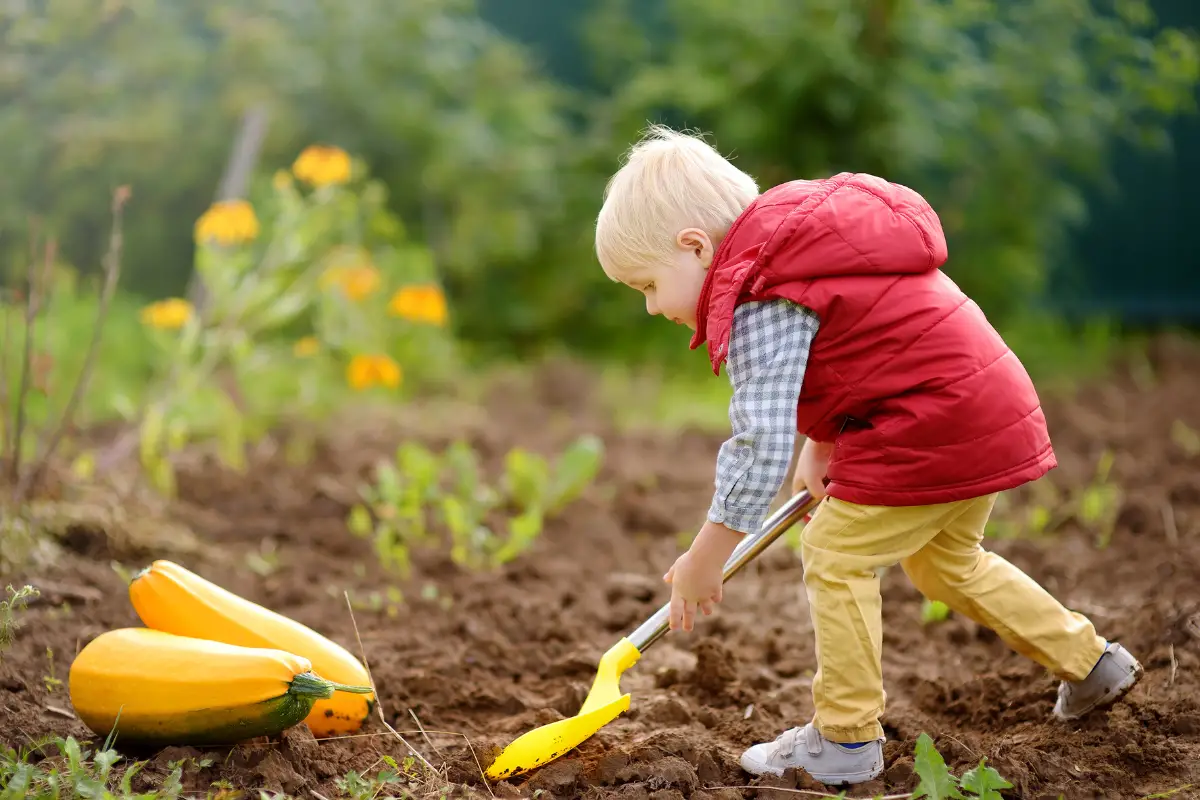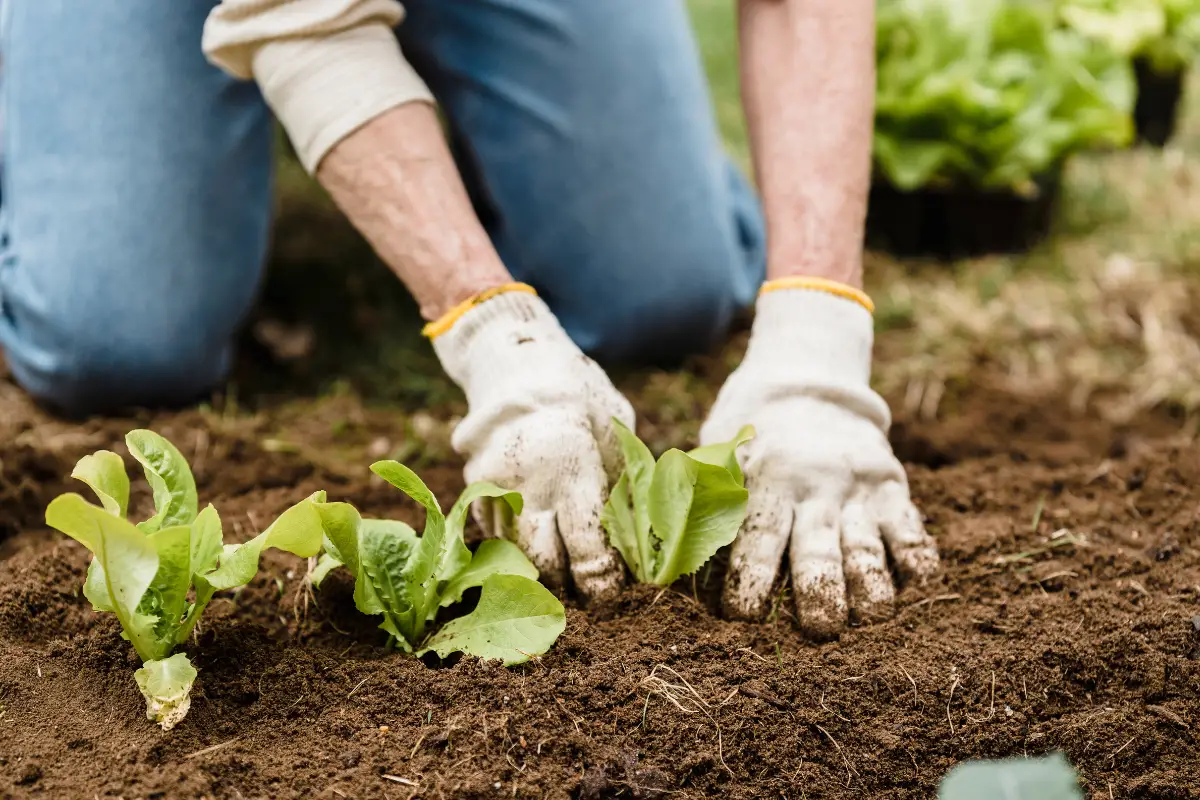Sunflowers are a popular choice for gardeners due to their vibrant colors and impressive size.
However, to grow healthy sunflowers, it is important to provide them with the right growing conditions, including the right type of soil.
Sunflowers are known for their deep taproots, which can grow several feet into the ground.
As such, they require loose, well-draining soil that allows their roots to penetrate and access nutrients and water.
The best soil for growing sunflowers is a nutrient-rich, loamy soil with a slightly acidic to alkaline pH of 6 to 7.5.
While sunflowers can grow in a variety of soil types, including sandy, loamy, and clay soils, they prefer soil that is not too compacted and is rich in organic matter.
Adding compost or aged manure to the soil can help improve its quality and provide the necessary nutrients for sunflowers to thrive.
In the following sections, we will explore in more detail the best type of soil for growing sunflowers and how to prepare the soil for planting.

Table of Contents
Understanding Sunflowers
Sunflowers are beautiful, tall, and vibrant plants that are popular for their large and colorful blooms.
They are native to North America and have been cultivated for thousands of years for their seeds, oil, and ornamental value.
Sunflowers are easy to grow, but they have specific requirements for soil, water, and sunlight.
Sunflowers are annual plants that can grow up to 10 feet tall, depending on the variety. They have large, rough leaves and a thick stem that supports a single flower head.
The flower head can be up to 12 inches wide and is composed of thousands of tiny flowers called florets.
Each floret has a central disk surrounded by petals that can be yellow, red, orange, or brown.
Sunflowers are known for their ability to track the sun, a phenomenon called heliotropism.
This means that the flower head follows the sun as it moves across the sky, facing east in the morning and west in the afternoon. This behavior is thought to help the flower attract pollinators and regulate its temperature.
To grow healthy and vibrant sunflowers, it is important to understand their soil requirements. Sunflowers prefer well-drained soil that is rich in nutrients and organic matter.
They have a deep taproot that can penetrate the soil up to six feet deep, so the soil should be loose and friable.
In general, sunflowers thrive in loamy soil with a pH between 6.5 and 7.5.
Loamy soil is a balanced mix of sand, silt, and clay particles that provides good drainage, moisture retention, and nutrient availability.
However, sunflowers can grow in a wide range of soil types, from sandy to clayey, as long as the soil is not too compacted and has good drainage.
Sunflowers are heavy feeders and require regular fertilization to grow strong and healthy. They benefit from a fertilizer high in phosphorus and potassium, which promote root development and flower formation.
However, if the soil is already rich in nutrients, additional fertilization may not be necessary.
It is important to follow the label instructions when applying fertilizer to avoid over-fertilization, which can damage the plant and the environment.
Types of Soil
Sunflowers can grow in a variety of soil types, including sandy, loamy, and clay soils. However, some soil types are better suited for sunflower growth than others.
Here are some of the most common soil types for growing sunflowers:
Loamy Soil
Loamy soil is a combination of sand, silt, and clay, and it is considered the best soil type for growing sunflowers.
This type of soil is ideal for sunflowers because it is rich in nutrients and organic matter, and it holds the right amount of moisture to support plant growth.
Loamy soil is also easy to work with, making it a popular choice for gardeners of all levels of experience.
Sandy Soil
Sandy soil is another soil type that is suitable for growing sunflowers. This type of soil is well-draining, which means that it drains water quickly and does not hold onto excess moisture.
Sunflowers grown in sandy soil tend to have smaller root systems than those grown in loamy soil, but they can still thrive if they receive enough water and nutrients.
Clay Soil
Clay soil is a heavy, dense soil type that can be challenging to work with. However, sunflowers can still grow in clay soil if it is well-draining and rich in nutrients.
The key to growing sunflowers in clay soil is to add organic matter, such as compost or aged manure, to improve the soil’s quality and drainage.
Acidic Soil
Sunflowers prefer soil with a pH level between 6.0 and 7.5. However, they can still grow in slightly acidic soil with a pH level between 5.5 and 6.0.
If the soil is too acidic, gardeners can add lime to raise the pH level and make the soil more alkaline.
Alkaline Soil
Sunflowers can also grow in slightly alkaline soil with a pH level between 7.5 and 8.0. However, if the soil is too alkaline, gardeners can add sulfur to lower the pH level and make the soil more acidic.
Overall, the best soil type for growing sunflowers is loamy soil, but sunflowers can still thrive in sandy, clay, acidic, and alkaline soil if it is well-draining and rich in nutrients.
Gardeners should test their soil’s pH level and nutrient content before planting sunflowers to ensure that they provide the best growing conditions for these beautiful and resilient plants.
Ideal Soil for Sunflowers
When it comes to growing sunflowers, the right soil can make all the difference. Here are the three key factors to consider when choosing the ideal soil for sunflowers.
Loamy Soil
Sunflowers thrive in loamy soil, which is a combination of sand, silt, and clay.
Loam soil is ideal for gardening because it is permeable enough to provide adequate drainage while retaining nutrients and water.
The silty, sandy texture of loam soil allows for steadfast taproots to easily penetrate the soil, which is essential for sunflowers to grow tall and strong.
Well-Draining Soil
Sunflowers prefer well-draining soil that is not too compacted. If the soil is too compacted, the taproot will not have enough room to penetrate the soil, which can stunt the growth of the sunflower.
To ensure that the soil is well-draining, it is recommended to add compost or aged manure to the soil.
This will help improve the quality of the soil and provide the necessary nutrients for sunflowers to thrive.
Soil pH Level
Sunflowers prefer soil with a pH level between 6.5 and 7.5. If the soil is too acidic or too alkaline, it can affect the growth and development of sunflowers.
It is recommended to test the soil before planting sunflowers to ensure that the pH level is within the ideal range.
If the soil is too acidic, adding lime can help raise the pH level. If the soil is too alkaline, adding sulfur can help lower the pH level.
In summary, sunflowers thrive in loamy soil that is well-draining and has a pH level between 6.5 and 7.5.
By providing the right soil conditions, sunflowers can grow tall and strong, producing beautiful blooms that brighten up any garden.
Improving Soil for Sunflowers
Sunflowers can grow in a variety of soil types, but they thrive in well-draining, loamy soil with a pH between 6.5 and 7.5.
Here are some tips for improving soil quality to ensure healthy sunflower growth.
Adding Organic Matter
Adding organic matter to the soil can help improve its quality and provide the necessary nutrients for sunflowers to thrive.
Compost or aged manure are great options for adding organic matter. These materials can be mixed into the soil before planting or applied as a top dressing around the base of the plant.
Soil Testing
Before planting sunflowers, it’s important to test the soil to determine its nutrient content and pH level.
Soil testing kits can be purchased at garden centers or online. The results of the soil test will help determine what amendments are needed to improve soil quality.
Correcting Soil pH
Sunflowers prefer soil with a pH between 6.5 and 7.5. If the soil pH is too low or too high, it can affect the plant’s ability to absorb nutrients.
To correct soil pH, add lime to raise the pH or sulfur to lower the pH. The amount of lime or sulfur needed will depend on the soil’s current pH level and the desired pH level.
In summary, improving soil quality is an important step in growing healthy sunflowers.
Adding organic matter, testing the soil, and correcting soil pH are all effective ways to ensure optimal sunflower growth.
Common Soil Problems and Solutions
Poor Drainage
Sunflowers need well-draining soil to thrive. Soil that is too compacted, heavy, or clay-like can cause water to accumulate around the roots, leading to root rot and other issues.
To improve drainage, gardeners can add organic matter such as compost or leaf mold to the soil.
This will help to break up the soil and improve its structure, allowing water to flow through more easily. Additionally, raised beds or mounds can be created to further improve drainage.
Low Nutrient Content
Sunflowers require a soil rich in nutrients to grow tall and strong. Soil that is low in nutrients can stunt growth and lead to poor flower production.
Gardeners can add organic fertilizers such as compost or manure to the soil to improve nutrient content.
Additionally, slow-release fertilizers can be added to the soil before planting or during the growing season to provide a steady supply of nutrients.
Incorrect pH Level
Sunflowers prefer a soil pH between 6.0 and 7.5. Soil that is too acidic or alkaline can lead to nutrient deficiencies and other problems.
To determine the pH level of the soil, gardeners can use a soil testing kit or send a sample to a lab for analysis.
If the pH level is too low, gardeners can add lime to raise it. If the pH level is too high, gardeners can add sulfur to lower it.
It is important to follow the recommended application rates for these amendments to avoid over-correcting the pH level.
By addressing these common soil problems, gardeners can create an optimal growing environment for sunflowers and ensure a bountiful harvest.
Conclusion
In conclusion, the best soil for growing sunflowers is one that is well-drained, rich in nutrients, and has a pH level between 6.0 and 7.5.
Sunflowers require a lot of nutrients to grow, so adding organic matter such as compost or manure can help to provide these essential nutrients.
Additionally, it is important to ensure that the soil is not too compacted, as this can inhibit the growth of the sunflower’s roots.
By providing the right soil conditions, sunflowers can thrive and produce beautiful, vibrant blooms.
- How to Dry Basil Leaves: A Professional Guide
- Is an Avocado a Fruit or Vegetable? Simple Answer and Explanation
- Does Pineapple Have Seeds? Exploring the Anatomy of Pineapples
- Blooming Through Winter: Can I Grow Vegetables Indoors in the Winter?
- What Can You Grow in a Greenhouse All Year Round: A Guide to Year-Round Greenhouse Gardening
- Are Blueberries Blue? Debunking the Myth of Their Color
















